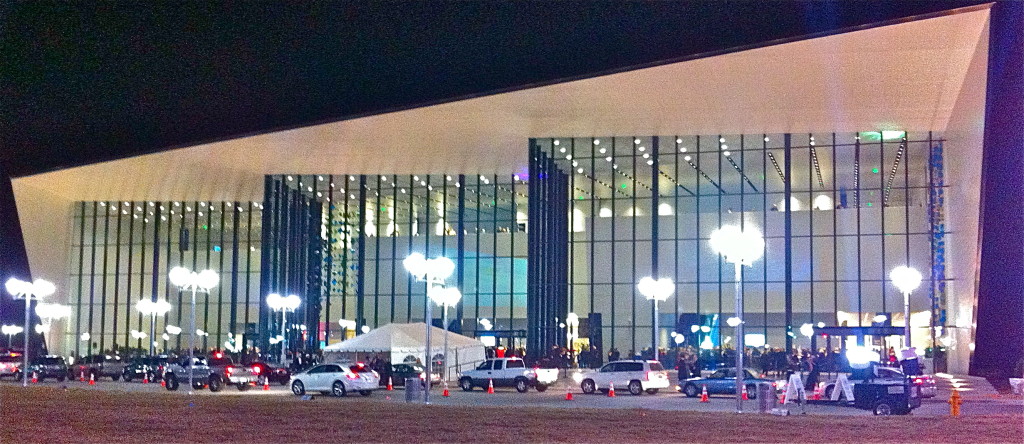
OWENSBORO, KY –Â In February 2009, in the very depths of the Great Recession, seven of the nine commissioners elected to lead this capable city and surrounding Daviess County took a long breath, understood the political consequences, and approved a modest increase in a local tax to generate $80 million to build a new downtown.
Though just two of the seven officials remain in office, what they accomplished in a single courageous vote achieved three distinct and nationally significant objectives.
First, they created a local economic stimulus plan that, to date, has generated $250 million in downtown construction and infrastructure upgrades — $140 million in taxpayer-supported investment and $110 million in private spending. A pallid, mall-savaged 20th century downtown, short of breath and close to death, is being replaced by a beaming and inviting urban center fit for the 21st century. Owensboro today is a display of savvy design that encompasses a stunning river walk and riverfront park, a $50 million convention center, two new hotels, a $12 million office building, new housing and businesses, and streets reconstructed as handsome boulevards, with wide sidewalks to encourage outdoor cafe seating.
Second, those seven elected officials offered a pointed rebuke to the politics of austerity that grips Kentucky and the nation. The local increase in an existing tax on insurance premiums — from 4 percent to 8 percent, or around $150 a year for an average family — unleashed a torrent of new economic activity that produced hundreds of new jobs, more than any city in Kentucky, and dropped the city and county unemployment rates to around 6 percent, among the state’s lowest.
And third, Owensboro and Daviess County are building a nearly flawless case in support of the primary economic principle that built the United States — the joining of public spending with private investment to foster civic innovation, strengthen the quality of life, and generate jobs and new wealth.
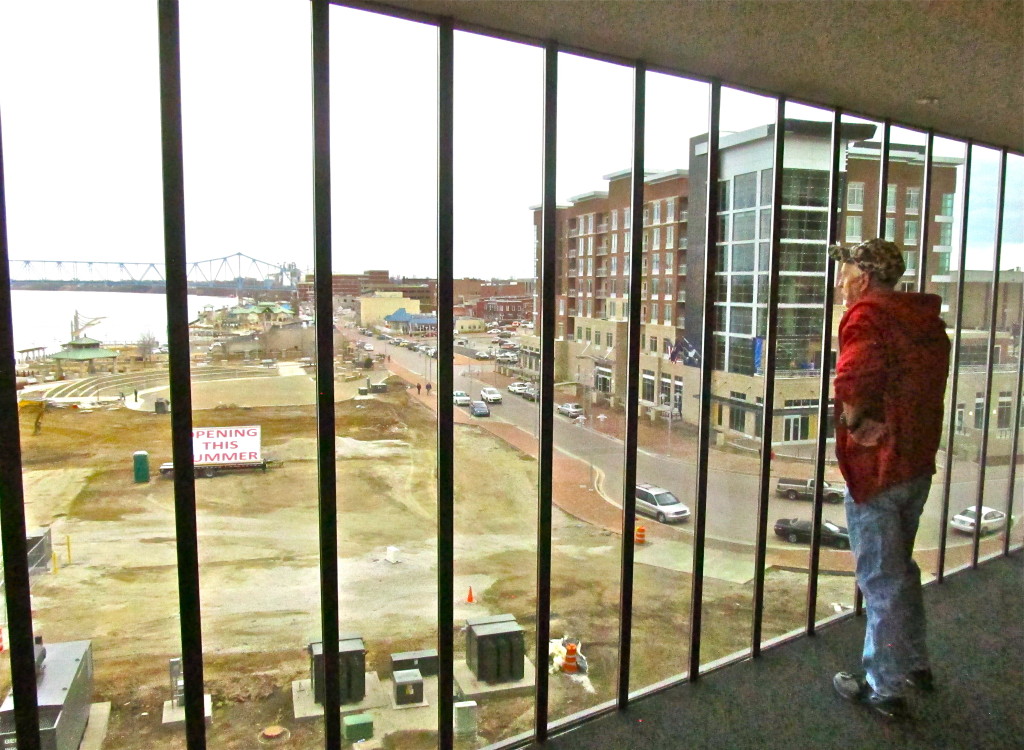
Spurred by two-term Republican Mayor Ron Payne, who led Owensboro’s downtown redevelopment, city leaders here are doing everything in their power to make sure that lesson hits home. Earlier this month Payne and his colleagues held a three-day, $134,000 party to stoke the new civic energy. It started on January 31 with an evening open bar, a tenderloin banquet, and a Sara Evans country music concert, all free of charge, for 2,100 evening gown and tuxedo-clad city and county residents.
The occasion, maybe the most ardent, festive, and longest public party ever held in Owensboro — nobody here remembers anything comparable — celebrated the on-schedule, on-budget opening of the city’s two newest facilities — a 169,000-square-foot Convention Center and the $20 million LEED-certified, seven-story, 151-room Hampton Inn & Suites next door.
Both are set high on the south bank of the Ohio River. The hotel, with a striking circular waterfall in its lobby, and a locally-owned fine dining restaurant, employs 100 people and is heated and cooled with an advanced geothermal system. The Convention Center, designed by Trahan Architects of New Orleans, is a study in sharp angles, sparkling glass, suffused light, and textured steel that honors the public realm and will likely serve for the rest of the century as Owensboro’s signature architectural statement. As its presence becomes more widely known, Owensboro’s Convention Center will soon be regarded as one of the most magnificent buildings along the entire 981-mile length of the Ohio River.
“Kentucky’s governor [Democrat Steve Beshear] was here at the opening on Friday,” said Payne, who ran unopposed in 2012 for a second term. “He told me more is going on in Owensboro than any city in Kentucky. We call it a renaissance. We’re just about remaking everything in this city.”
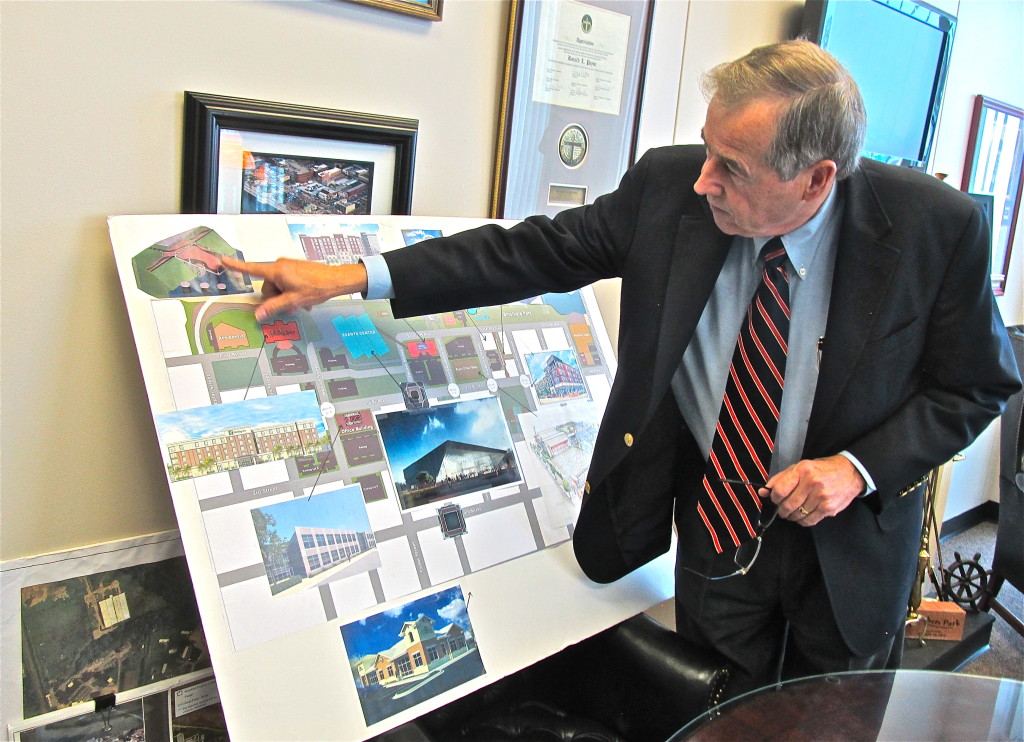
Given the steady appearance of new buildings, and the rising count of new jobs, even the most ardent critics of government might begin to question their assumptions about the virtue of public spending and effective leadership. Indeed, in interviews at the gala opening and over the weekend, people said they were very impressed by the changes in their city.
“It’s amazing, really,” one woman told me, who also acknowledged she opposed the 2009 tax increase. “It’s hard to believe this is happening in Owensboro.”
Still, a powerful and pervasive undercurrent of anti-government, anti-spending sentiment persists here. Tom Watson, a conservative who spent a single four-year term as Owensboro’s mayor from 2005 to 2009, said he expected the Convention Center’s price tag to soar above $55 million and that city and county leaders would eventually campaign to increase local taxes to pay for it. “You’ll see,” he said. “They aren’t done raising taxes.”
Mayor Payne disputed that point, asserting that the Convention Center was built on time and on budget at a cost of $50 million. The city’s finance managers said that job and business growth has been so strong that they anticipate retiring years earlier than scheduled the construction bonds that were financed by the tax increase.
Arguably the most telling demonstration of Kentucky’s anti-government, anti-spending fervor was the behavior of the state’s Republican U.S. Senators: Rand Paul and Mitch McConnell. Sen. Paul, a presumed 2016 Republican presidential candidate, was elected in 2010 with the help of Daviess County voters, who supported him by a margin of 55 percent to 45 percent. Sen. McConnell, the Senate minority leader who’s also enjoyed strong electoral support here, is running this year for his sixth term.
Both lawmakers were invited to speak at the Friday gala. Both declined the invitation through their aides days before the event, citing other commitments, said city staff members. Neither forwarded a message of congratulations to be read at the gala. Their absence during an electric evening that featured a live audience of 2,100 voting guests, and was attended by Gov. Beshear and Alison Lundergan Grimes, Kentucky’s secretary of state and Senator McConnell’s Democratic opponent for his re-election, was conspicuous.
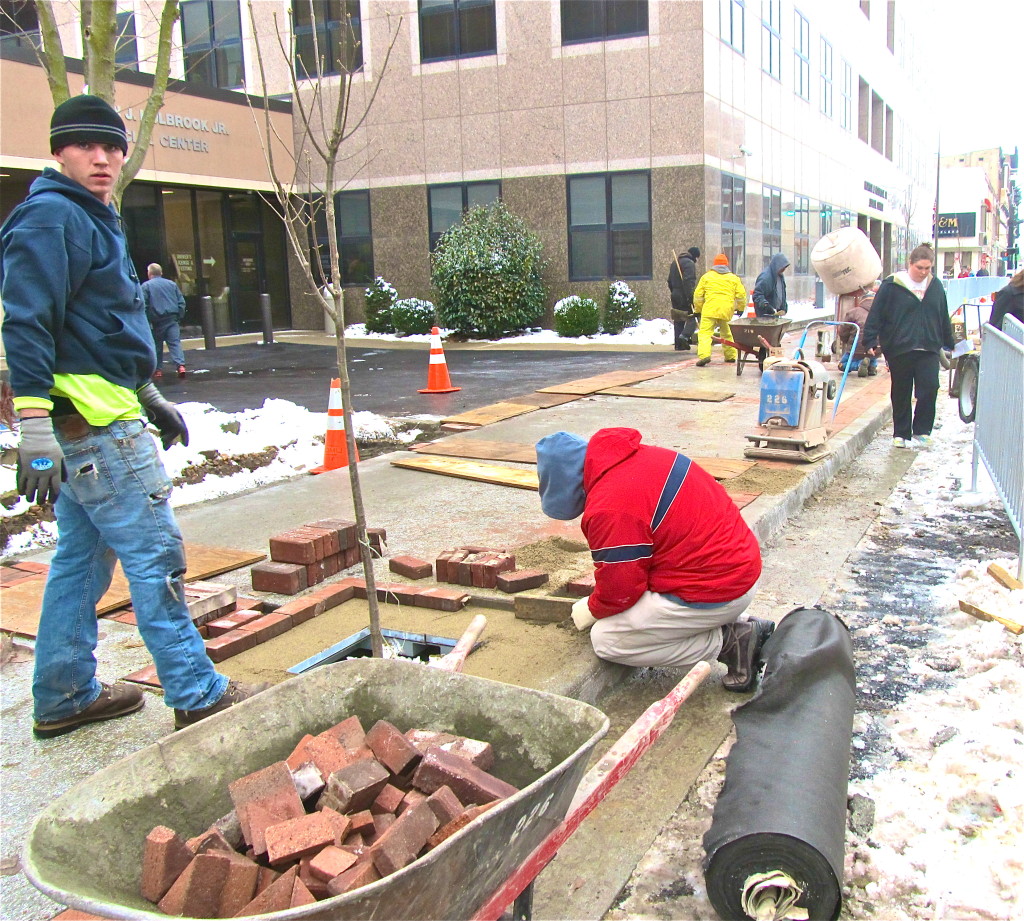
I queried the Kentucky and Washington staffs of both senators, asking why the lawmakers declined to attend such a prominent event in their home state.
Senator Paul’s Kentucky staff provided phone numbers and email contacts to communications personnel in Washington who ignored my on-line inquiries and calls.
Robert R. Steurer, Sen. McConnell’s communications director in Washington, replied. “Thanks for reaching out to me. I will let you know if I’m able to get a response from the senator for you,” he wrote in an email. Steurer added in a last message: “Sorry it’s been busy here this week. Not sure I will have anything for you on this, but will let you know if that changes.”
Mayor Payne, who acknowledged that he and other officials were disappointed that neither senator made an appearance, explained that their absences were motivated by party politics. Neither senator wanted to be associated with taxpayer investments that generated new revenue, new facilities, and new jobs, Payne said.
“The Republicans may not like this because here is a success story right smack in the middle of the Obama administration,” said Payne. “That’s the last big thing they want to see. They don’t want any successes. And for us to be touting this may not fit that national agenda.”
Senator McConnell’s absence was particularly baffling, said Payne. The mayor noted that in 2008, Sen. McConnell secured a $40 million federal grant to build an Ohio River floodwall and park that added valuable shoreline acreage to Owensboro’s downtown. The grant, which came at the request of city officials including Payne, who has variously served as city manager and as a city commissioner, helped leverage public support for a downtown master design plan, and steeled the civic resolve to approve the $80 million local tax increase to get the reconstruction project under way.
Owensboro saluted Sen. McConnell’s work. Named in the senator’s honor are the Mitch McConnell Riverwalk and the Mitch McConnell Plaza, which include a wondrous synchronized hydro-jet water fountain and plaza, an outdoor children’s museum and playground, and a permanent home for the Shelton Memorial in Memorial Park, Owensboro’s tribute to the men and women of the Armed Forces. In other words, Owensboro’s redevelopment would not have happened without the $40 million that Sen. McConnell hauled out of Washington, said Payne.
“I know why he didn’t come,” Payne said, noting that McConnell faces Kentucky businessman Matt Bevin, an anti-government Tea Party opponent, in the Republican primary in May. “He didn’t want us to talk too much about his getting us the $40 million. It’s politics.”
Though it occurred in an Ohio River city of 57,000 residents, and in a largely rural Kentucky county of under 100,000 residents, Sen. McConnell’s decision not to attend the Friday gala, like an exquisitely aimed spotlight, brought into sharp focus an emblematic moment that is symptomatic of our national life.
Periodically, events in Owensboro do that. After all, this city has occupied a high bank of the Ohio River for almost as long as there’s been a United States. It knows a few things about marking its place and defining its time in this region of the country.
When the United States, for instance, was still so young and adding territory, Lewis and Clark and their expeditionary force wintered here enroute to the Missouri River and their grueling 1804 trek to explore the Pacific Northwest.
Abraham Lincoln was raised in a cabin across the Ohio, in Spencer County, Indiana.
In 1936, when race and revenge were as powerfully embedded in society as mass murder and gouts of blood are now, a black man who pleaded guilty of raping and killing a white woman was hanged here in front of 10,000 to 20,000 people, according to varying estimates. It was the last public execution in the United States.
In the late 1970s, as manufacturing plants grew obsolete and industrial jobs transferred out of the Ohio River Valley to low wage plants in Asia and Central America, General Electric began systematically closing its Owensboro vaccuum tube and electric parts operations, which employed over 6,000 workers during its peak in the 1960s. City and county leaders, desperate to halt the flood of industrial jobs out of the area, cobbled together in the late 1980s a package of publicly financed incentives worth $100 million to lure a paper mill to town that still employs just 350 workers. The package of tax breaks and other gifts underscored the weakness of the theory that stealing factories from another state would do much more than add to the bottom line of a single company.
Owensboro’s downtown redevelopment, a classic public works project, is a much smarter investment. It has already produced seven times that number of jobs, according to city officials, and in inflation-adjusted dollars, at half the cost of the paper company package. US Bank Home Mortgage alone, which employed 550 people in the city and Daviess county in 2009, now employs nearly 2,500 workers. The company’s executives told Mayor Payne the reason it decided to invest in three phases of expansion is because of the commitment the city has shown to building a new downtown.
Owensboro’s reconstruction, half a decade old, proves the value of America’s historically effective development strategy — leveraging public infrastructure spending to encourage private development. President Lincoln, after all, invested in building the transcontinental railroad and developed the national network of land grant agricultural universities while America fought a civil war. President Franklin Roosevelt invested in public works — forest conservation, constructing the Hoover Dam, building new parks and roads – to push the country out of the Depression.
Owensboro’s triumph is having the foresight and leadership to apply the same economic principle to draw a community together and build a river city that can compete in the 21st century. The decisions by Sen. Paul and Sen. McConnell to avoid Owensboro’s gala celebration is a telling measure of how threatening the anti-government, anti-investment politic of the day is to that principle, and the security of Kentucky and the nation.
— Keith Schneider
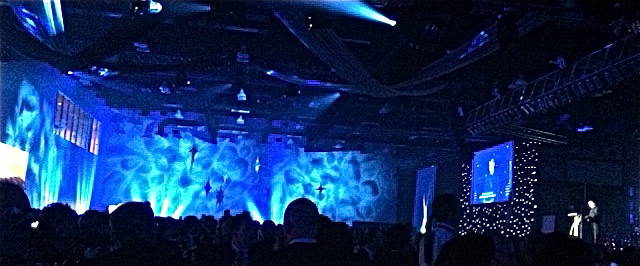
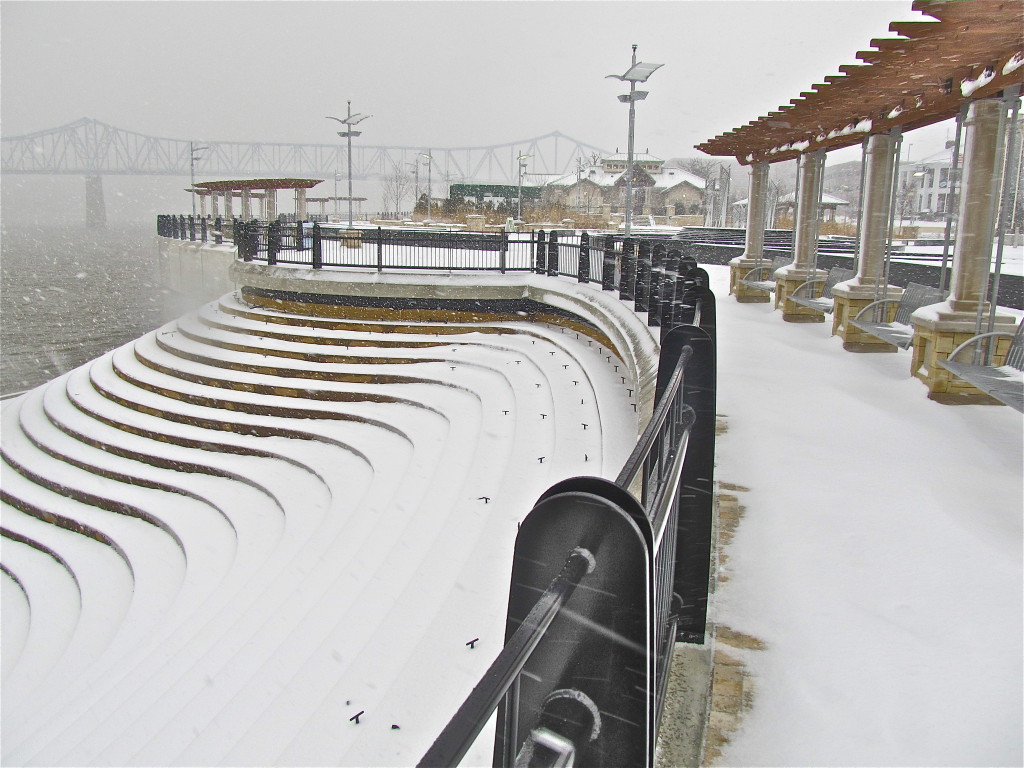
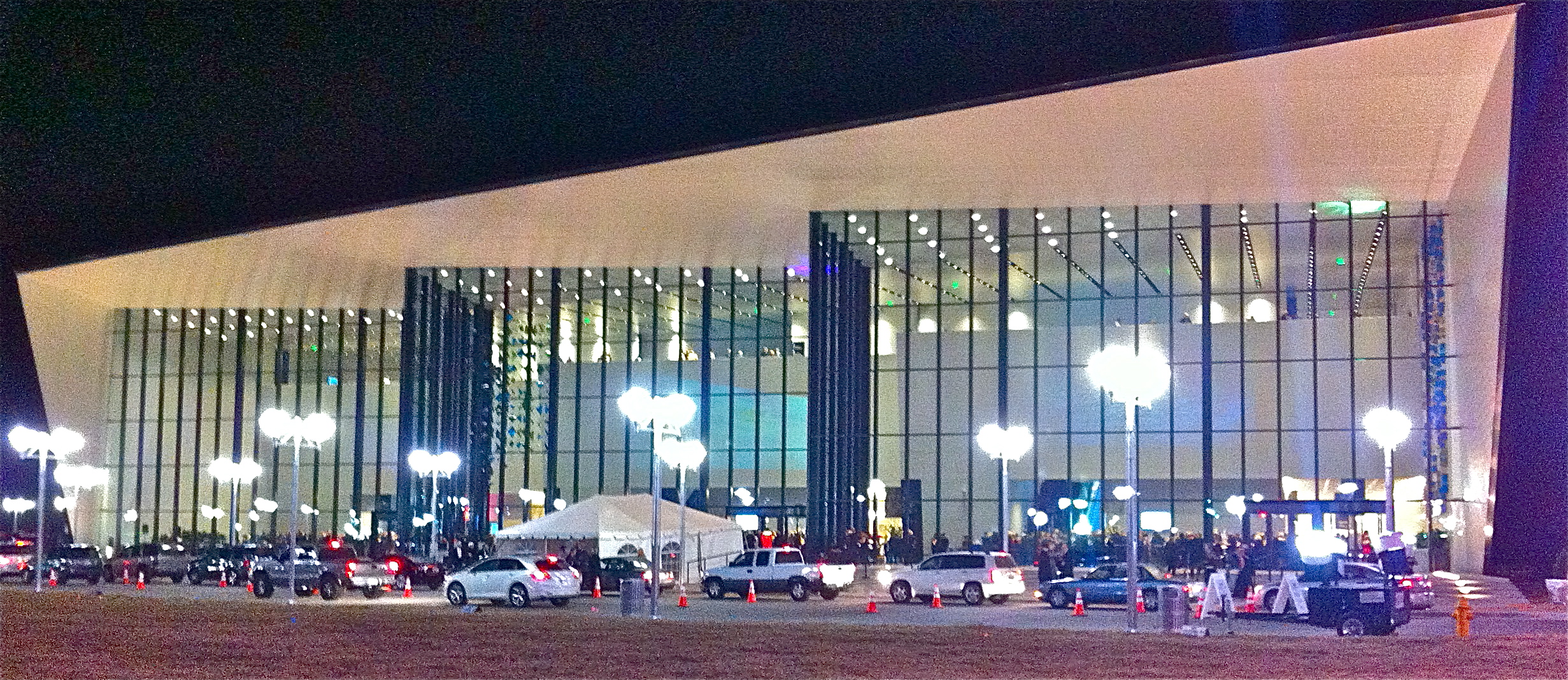
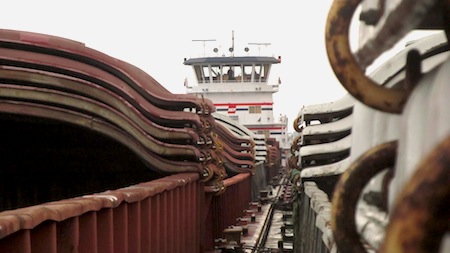
Terrific article, Keith. Your ‘view from the bridge’ is so valuable to our continuing focus, keeping civic progress in perspective for us here in Owensboro. We’re fortunate to have you reporting and writing about our city and how it relates to the rest of the country. Great photos, as well!
Thanks Gabrielle. Your presence in that city is so valuable to its progress. All best, Keith
Since I was mentioned in the article without the author ever speaking to me I feel I should respond just for another point of veiw.
I have said that there will be a need to raise taxes, but the rest of that statement was ‘to contiue the growth and pay for things like maintenence, and more government incentives’. Also another ice storm maybe needed and a state of emergency so the commission can vote on the tax increase so it can be passed without public comment.
My reason for concern is the fact that we are unable to raise our tax base to keep pace with the spending for the much needed improvements. Our growth has been stagnant for years. We are no longer the second largest city in Kentucky, that designation belongs to Bowling Green. Also the transportation issues we have continues to be a problem. Couple that with the Ford center 45 minutes away with an airport that can bring people to their event center. The federal, state and local debt should be a concern for all of us not just a one term mayor.
Granted the I -69 interstate project gives us some hope but with the lack of federal money available puts this project so far in the future we will probably have to do a remodel to our new builds before the road will be completed if done at all.
As for me being a one term mayor, I chose not to run again since I have a private business and never intended to be a career elected official. And there is nothing wrong with being conservative that’s how we got the 40 million dollars to start the waterfront development. My relationship with conservative Sen McConnell was the catalyst for the federal transportation tax dollars to come to Owensboro.
Slapping our two Senators was just foolish. Where do you think the funding for I-69 will come from? And just as foolish was not mentioning U.S. Congressman Brett Guthrie was at the event to give praise to our community.
Once again, an author had a chance to praise what has been done but couldn’t stop there. The chance to drag some negativity to the article was just to great opportunity to pass up.
Owensboro is a great community that I love dearly and I hope and pray all goes as planned.
I didn’t realize, or don’t want to recognize, how unforgettable I am. But I did speak with Tom Watson in person during the cocktail party prior to the gala, introducing myself as Keith Schneider, the journalist who interviewed the former mayor in his office during the summer of 2011. That assignment involved preparing What’s Done, What’s Next: A Civic Pact, the Citistates study that suggested new planning goals for Owensboro and Daviess County. I was even wearing a grey suit, a white shirt with French cuffs, and my father’s gold cufflinks while I talked with Tom. Memorable attire I thought. His comments are quoted accurately here. And I appreciate his other remarks. Keith Schneider